Student Blog
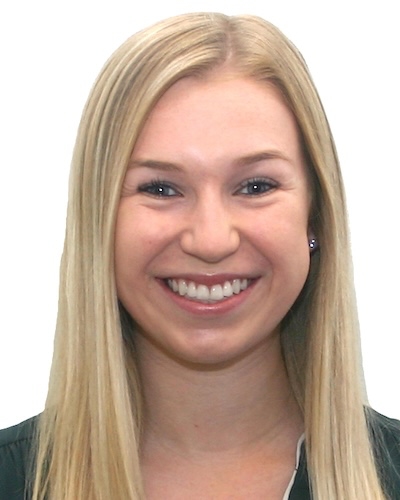
Signing Off for the Summer ⟩
August 19, 2017, by Jessica P.
This summer working as a student ambassador has been one of my most memorable experiences at USC so far. From giving tours to prospective students to going to Meet USC events to speak to high school students, I have been busy spreading OT love everywhere.
I am even more confident now than I was three months ago that I am pursuing the perfect profession for me. The past few months I have learned more about the diversity within OT and all of the opportunities we have as occupational therapy students. Now when someone asks me, “What is OT?” — I always have an answer, and I could probably go on talking about OT for hours.
Next Monday I start the master’s portion of my academic career, beginning with the mental health practice immersion. I can’t wait to push myself even further to begin shaping myself as the occupational therapist I know USC will help me become. Being apart of the OT family at USC has opened doors to so many things and I know it will continue to do so for a lifetime.
I hope that everyone has a great fall semester and fight on!!
⋯

Welcome Class of 2021! ⟩
August 17, 2017, by Jessica P.
This week has been an exciting one for our new Bachelor to Master’s Occupational Therapy freshmen. We are so happy to welcome 11 new Trojans into the family.
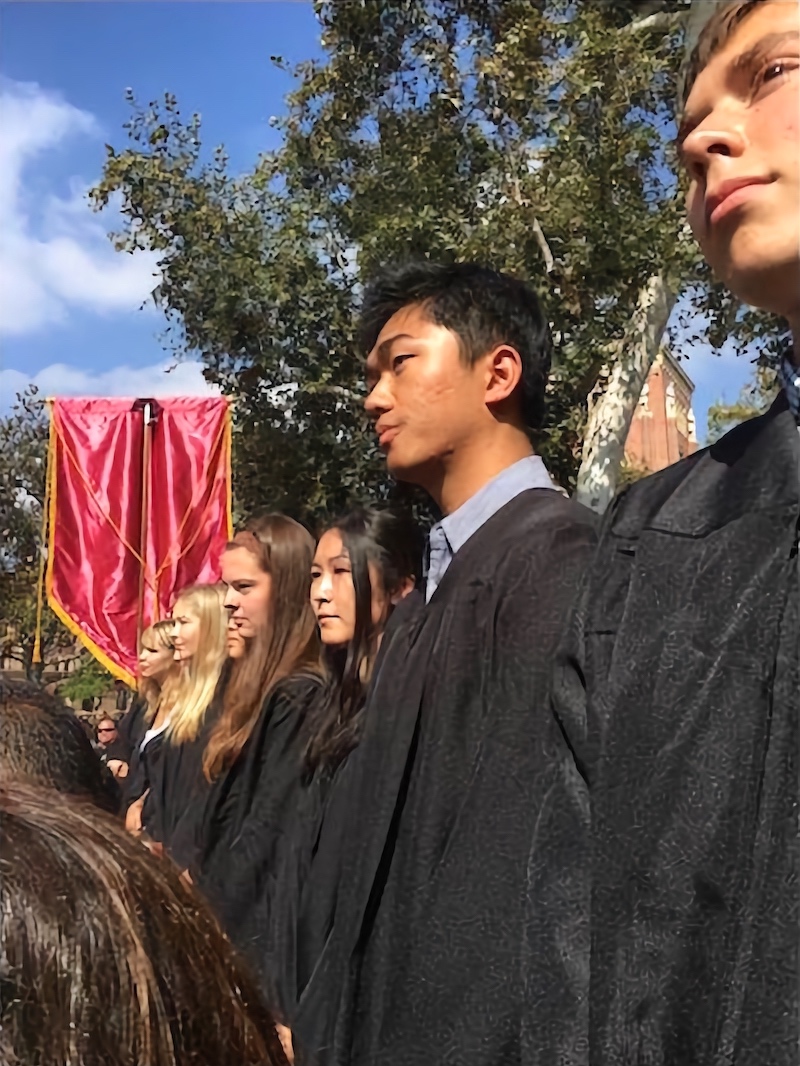
OT students at USC Convocation
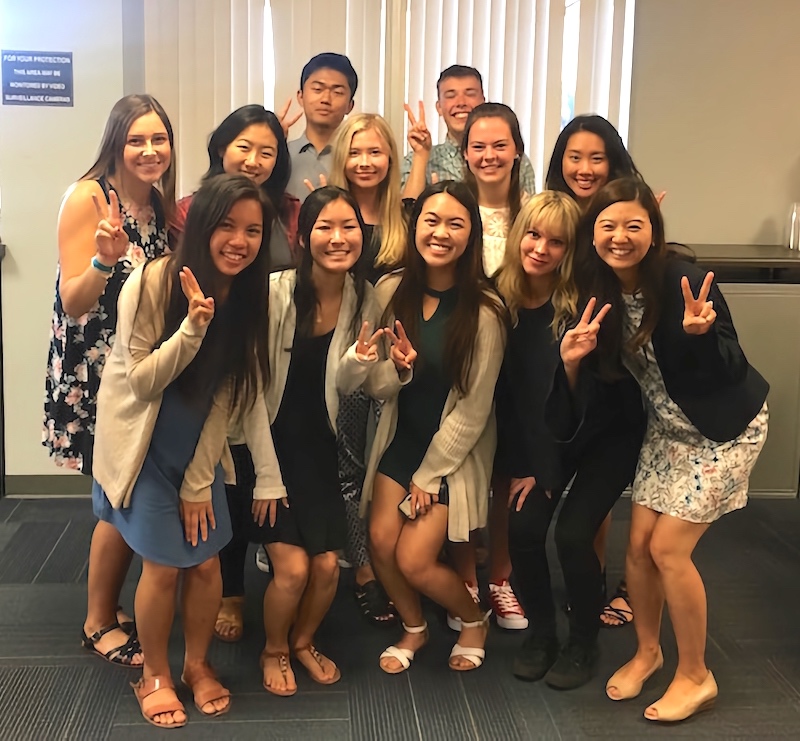
BS-MA Class of 2021 with their amazing academic advisor, Joanne Park
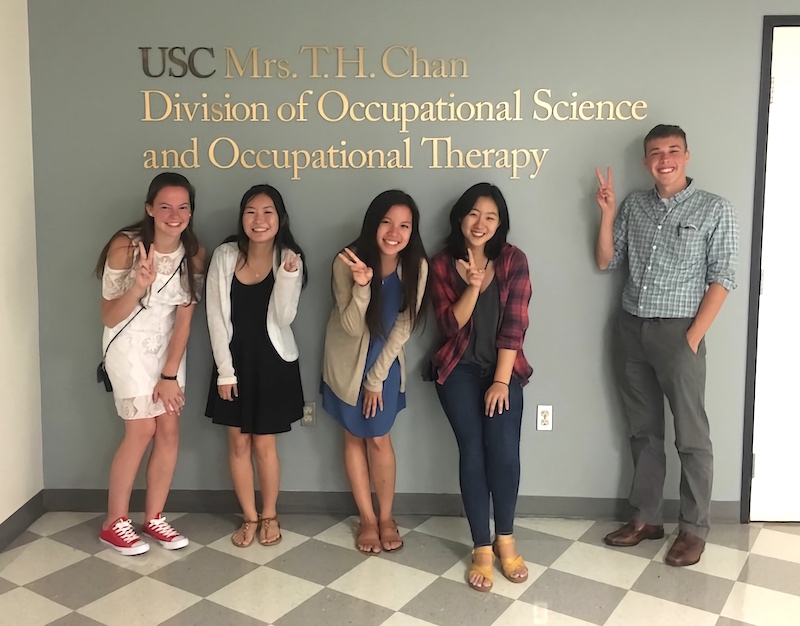
Class of 2021 (and Master’s Class of 2022) fighting on!
⋯

USC Village is Finally Open! ⟩
August 7, 2017, by Jessica P.
As Trojans, the USC Village is something we have all been waiting not so patiently for. Located on University Park Campus (UPC), the project has been a long wait for students. With a few stores already open and the grand opening on August 17, 2017, it is an exciting time to head back to school. The village boasts 5 new residential colleges and numerous restaurants and stores.
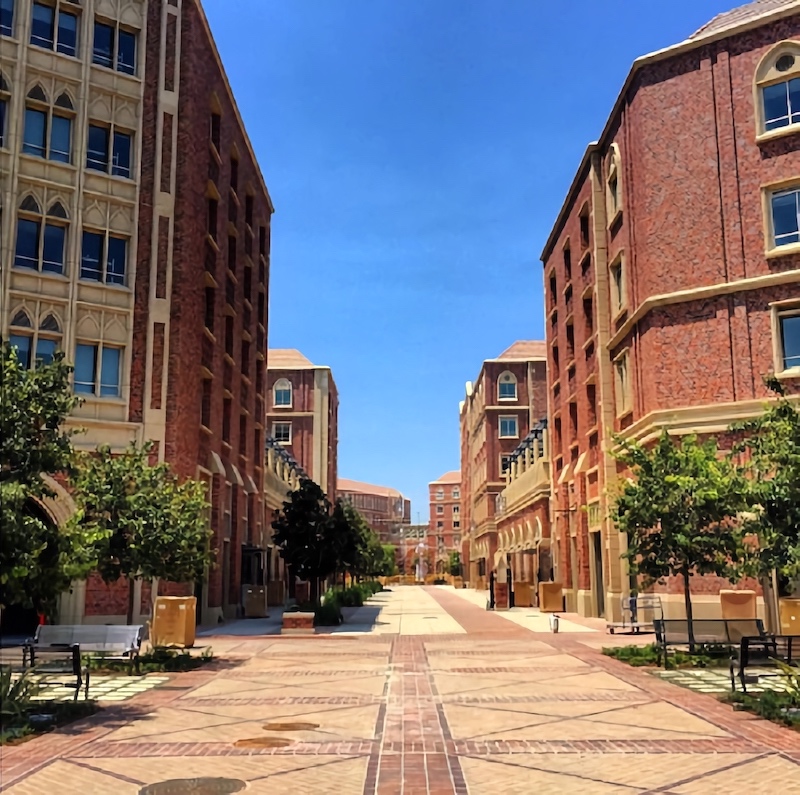
Here is a list of some of the new eateries and amenities:
Shopping
Trader Joe’s
Target
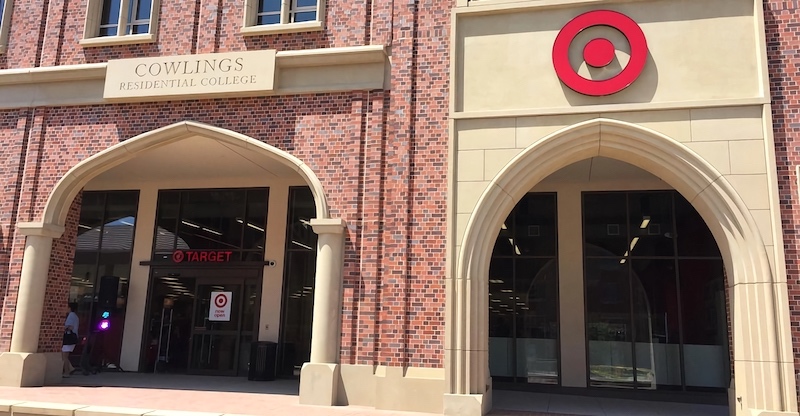
Restaurants
The Baked Bear

Barilla
BBCM

Cava
District H by Hannah An
Dulce
Greenleaf Gourmet Chopshop
Honeybird
Rance’s Chicago Pizza
Rock & Reilly’s
Starbucks
Sunlife Organics

Trejo’s Tacos
Walhburgers
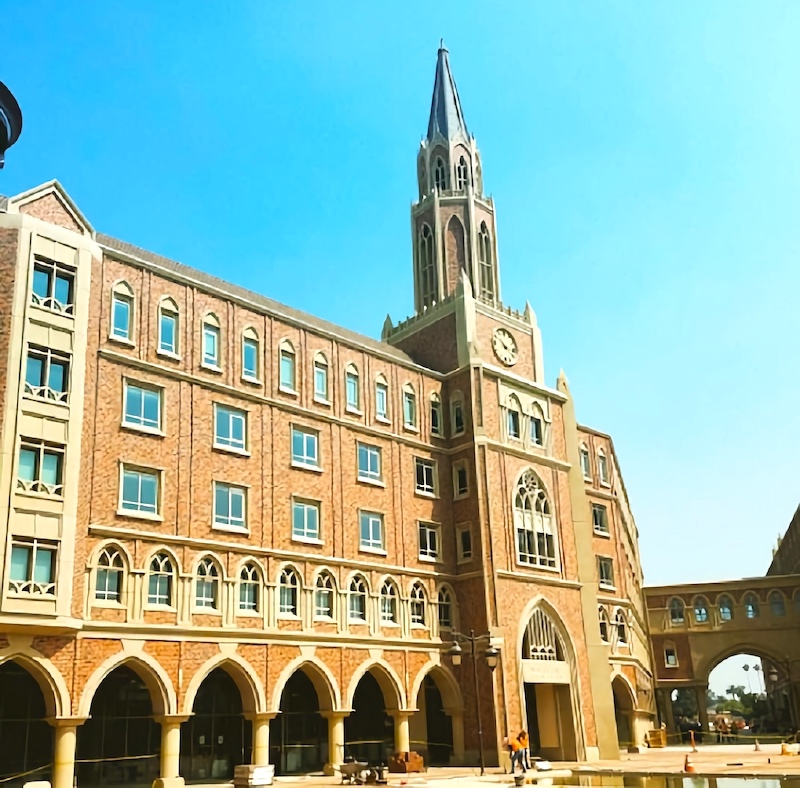
Fitness/Lifestyle/Amenities
Amazon
Bank of America
CorePower Yoga
Solé Bicycles
Nail Garden
URB-E Mobility Hub
Village Cobbler
⋯

Freshman Fall Bucket List ⟩
August 1, 2017, by Jessica P.
Getting Involved Living in LA School/Life Balance
In just a few short weeks, our incoming class of Bachelor to Master’s students will officially be Trojans as they begin their freshman year. While freshman year can be overwhelming, it is also one of the best times of your life. From navigating a new campus to dorms and dining halls, there is so much to be immersed in at USC from the start. Here are my recommendations for what you must do your freshman fall.
Attend Football Games
USC and football go hand in hand. Whether you are a football fan or not, game days are some of the best and most memorable days you will have at USC. Make sure to purchase your student football tickets!

Go to the Involvement Fair
Towards the beginning of the semester, USC will host an involvement fair where you can visit and learn about all of the student organizations on campus. Whether it’s joining the Pre-OT club, an intramural sports team, or a volunteer organization, there are limitless options to get involved on campus.

Take a Random Class
Some of the best classes I have taken are ones that I would have never originally considered. One of my personal recommendations is taking a 1-unit physical education yoga class. I loved being able to take yoga as a part of my curriculum since it kept me active and stress-free!
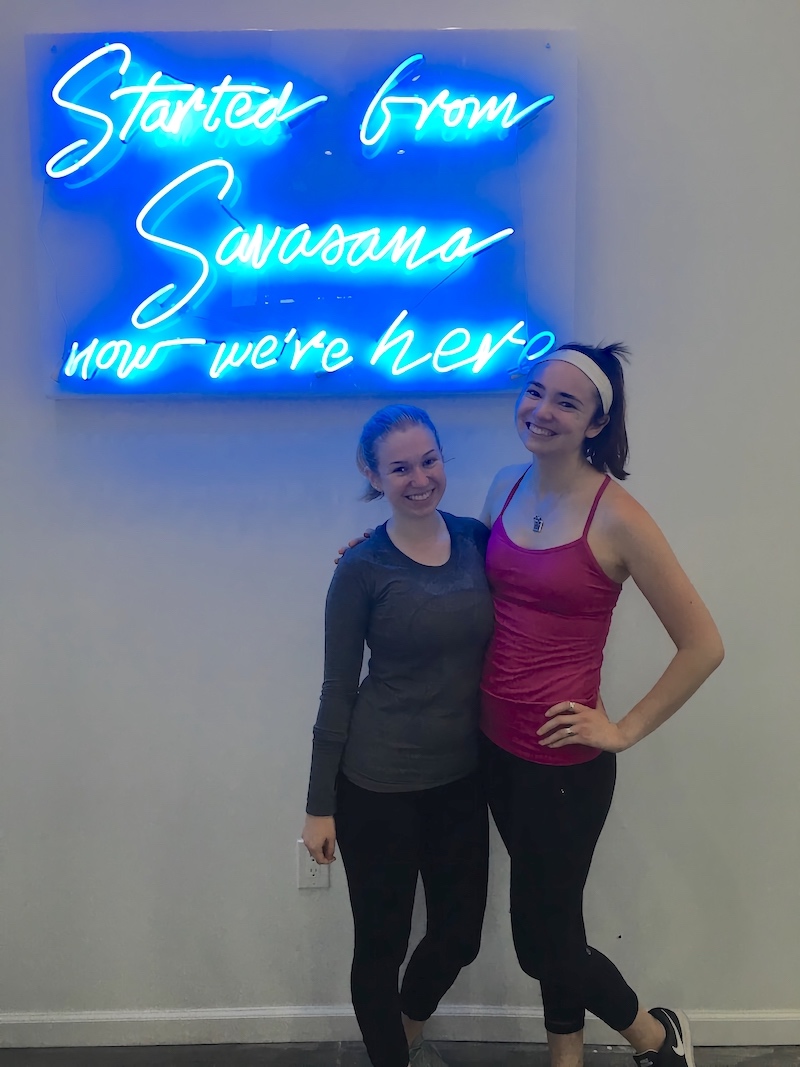
Go to the Weekender
One of my favorite memories every year is attending the weekender. Each year, USC students head up to the Bay Area when our football team plays either Stanford or UC Berkeley. Taking a fun break to travel for the weekend is a great way to bond with your new friends and cheer on our Trojans.

Find Your Study Spot
In order to play hard, it is even more important to work hard. Finding your best study environment may take awhile, but luckily USC has 23 libraries to choose from. My personal favorite is the philosophy library, located in Mudd Hall. If a library isn’t your vibe, try studying outdoors!
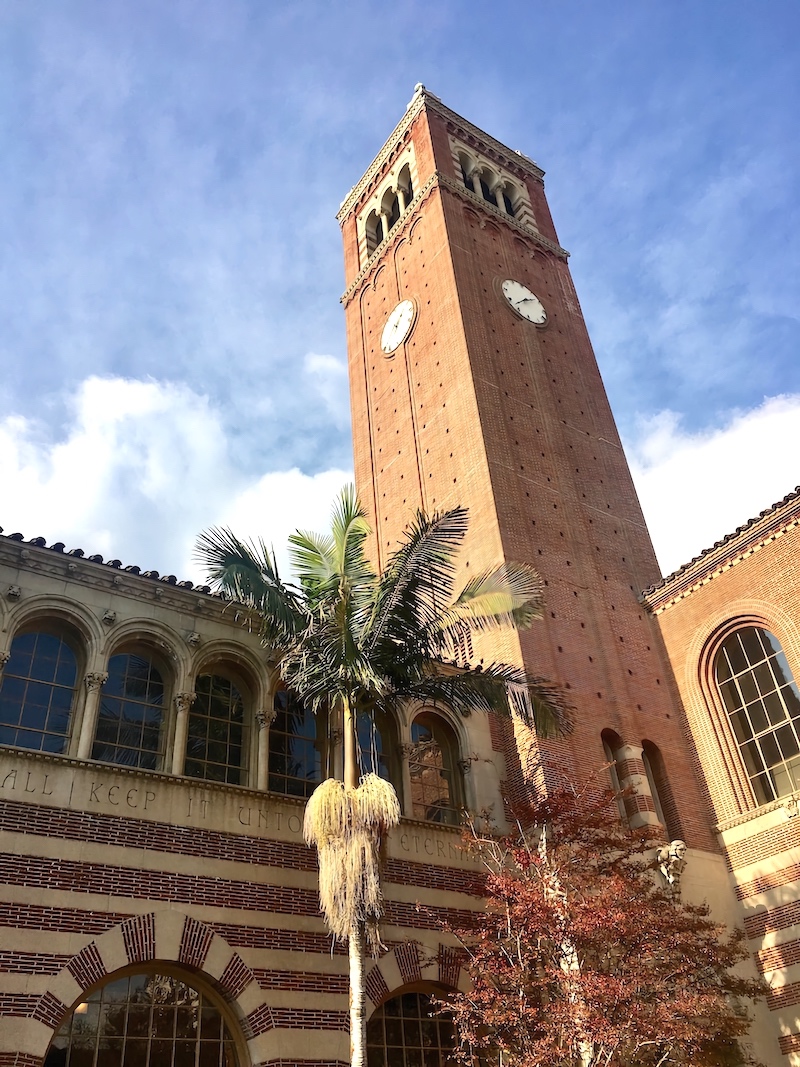
Relax!
It is so easy to get overwhelmed your first semester of college, but that is totally normal! Adjusting to being apart of a new community will take time. Don’t let yourself get overwhelmed with all of the things you feel like you need to be doing. Find an activity that is relaxing for you — whether that’s exercising, binge-watching Netflix, or taking excessive naps.
⋯

Choosing USC ⟩
July 28, 2017, by Jessica P.
Admissions Community Living in LA
This summer I have been super busy giving tours and bragging all about our OT program to potential Trojan OTs. I have been loving talking to potential Bachelor to Master’s, Entry-Level Master’s, OTD, and PhD students. One of the most asked questions is why I picked USC. I could go on for hours about how much I love being a USC OT student and how grateful I am to be able study what I love, at the university I love. Here are my top reasons why I chose USC:
- Trojan Family
You will often hear fellow Trojans discussing the Trojan Family or our extremely strong alumni, but I truly did not understand this concept until I became a student here myself. Being a member of the Trojan Family is so much more than just sharing the connection of going to one of the best universities in the world. The Trojan Family really is a family in that no matter where you go in the world, you can immediately connect with someone. - USC OSOT’s Reputation
As one of the top-ranking OT programs, USC has always been at the forefront of innovation and research in occupational therapy. Not only did USC develop occupational science, they also created the unique Lifestyle Redesign program. - Location, Location, Location
As Trojans we are lucky enough to live in sunny Los Angeles. USC’s campus is only a short drive from local beaches, shopping, and entertainment. Living in the city we also have a plethora of resources at our disposal, whether that is looking for an internship, place to study, or just things to do on the weekend. And of course, having 70 degree weather in December isn’t too shabby.
Lastly, one of the biggest reasons is being a Trojan for life. I was born and raised a Trojan — growing up going to football games and yelling “Fight On!” at everyone I saw. After years of dreaming of attending USC, it is finally a reality.
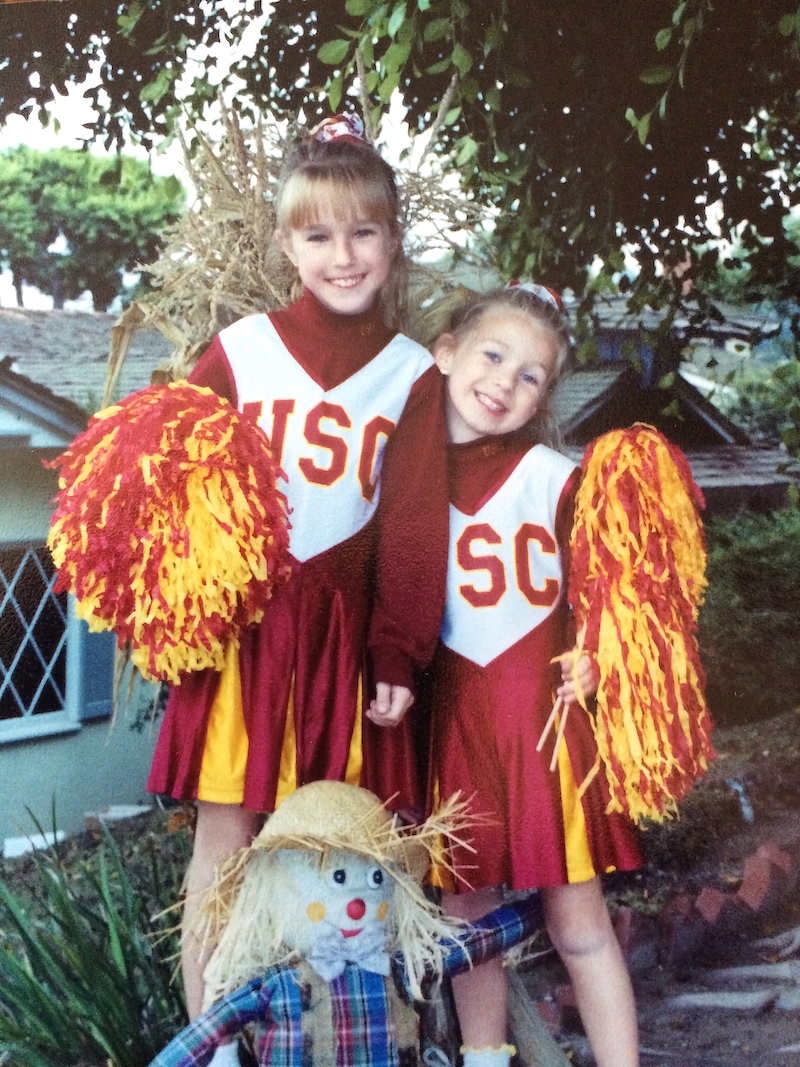
⋯





